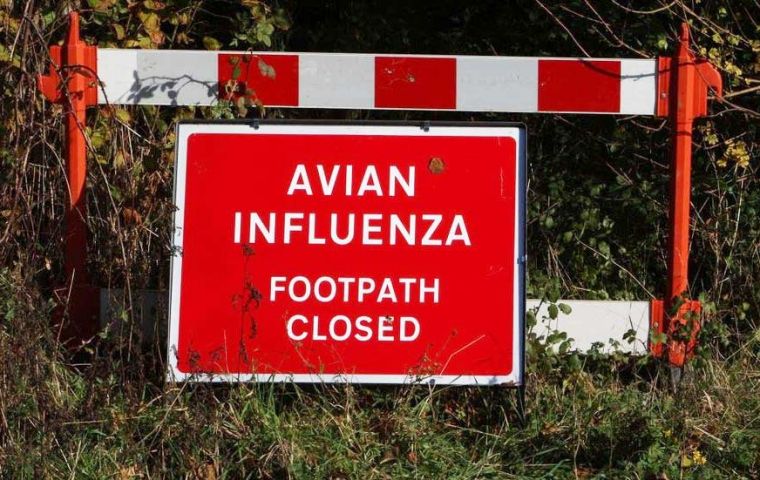MercoPress. South Atlantic News Agency
First fatal victim of bird flu reported in UK
 There is no evidence that this strain detected in the UK can spread from person to person, Oliver said
There is no evidence that this strain detected in the UK can spread from person to person, Oliver said British health authorities Friday reported what seems to be the first fatal case in humans of the H5N1 variant of bird flu, which rarely infects humans, but when it does, it has a mortality rate of about 60%.
According to the UK Health Security Agency (UKHSA), the victim had been in “very close, regular contact with a large number of infected birds, which they kept in and around their home over a prolonged period of time.”
It is not clear whether the individual has been infected with the specific H5N1 variant which has caused numerous outbreaks within bird populations in recent months. One million birds were reported to have been culled over the last month in Lincolnshire alone to slow the outbreak.
“Avian influenza has never gone away and the line is that it’s present in wild birds because they migrate more and because they travel long distances,” Dr. Bharat Pankhania, an expert in communicable diseases from Bath explained.
“We have noticed quite a lot of avian influenza in wild birds on their migratory paths. They often stop by watercourses and they are in their pool and releasing the virus. And then domestic poultry gets exposed to it and gets infected. That is when it can be transferred to poultry workers,” he added.
“Essentially, it will stay a poultry problem, but every now and then, if you are close to the birds that have been infected, you can be infected yourself. The trouble is that when humans get infected the illness can be on a range from no symptoms to something very, very serious with fatalities of 50-60 percent,” he went on.
“At the moment we don’t feel it’s highly transmissible from human to human but it’s known that if your infected person is in a confined routine with other people it can happen,” Dr. Pankhania also explained.
“What we don’t want is for these poultry workers to get an influenza infection and an avian influenza infection at the same time. In these circumstances, it’s possible to create a new virus, a human virus that is highly transmissible,” he warned.
Professor Isabel Oliver, chief scientific officer at UKHSA, said that “while the risk of avian flu to the general public is very low, we know that some strains do have the potential to spread to humans and that’s why we have robust systems in place to detect these early and take action.”
According to Oliver, officials had followed up with the individual’s contacts and had not found any evidence that the virus had spread to other people. “Currently there is no evidence that this strain detected in the UK can spread from person to person, but we know that viruses evolve all the time, and we continue to monitor the situation closely,” she added.
The World Health Organization (WHO) has been informed about the British case.




Top Comments
Disclaimer & comment rulesCommenting for this story is now closed.
If you have a Facebook account, become a fan and comment on our Facebook Page!